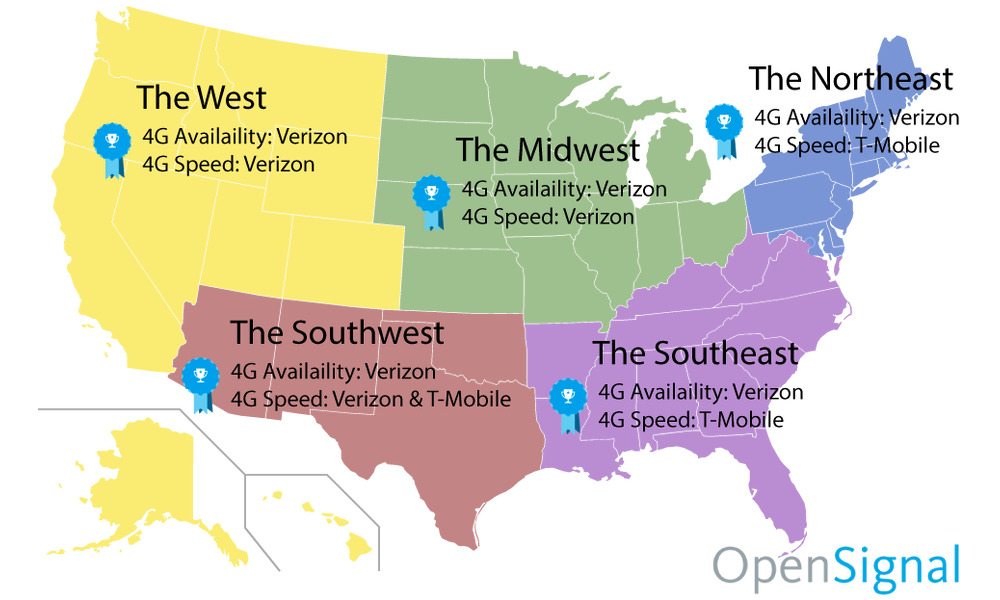Verizon Offers Fastest LTE Speeds in the West, While T-Mobile Dominates in the East

Toggle Dark Mode
Verizon Wireless offers the fastest LTE network in the Western United States, while T-Mobile’s networks are the fastest in the Eastern portion of the country.
The findings come from a recent study conducted by OpenSignal, an organization that crowdsources its coverage and speed data via smartphones users who have downloaded its proprietary app. The survey divided up the country into five distinct regions: the West, the Southwest, the Midwest, the Southeast and the Northeast.
According to OpenSignal’s data, Verizon dominated both the West region in terms of LTE download speeds, while T-Mobile had the fastest LTE network in the Southeast and Northeast regions. In the Southwest, a region made up of Arizona, New Mexico, Oklahoma and Texas, both Verizon and T-Mobile’s speeds were tied.
Some of the study’s most important data figures can be seen below.
- Verizon was able to maintain an impressive average of 20 megabits-per-second in the Midwest — 3 Mbps higher than its national average.
- Similarly impressive, T-Mobile was the only network to average more than 18 Mbps across three of the five U.S. regions.
- AT&T’s highest speeds were recorded in the Northeast region at 15 Mbps.
- Sprint’s highest speed clocked out at 10.7 Mbps in the Midwest.
As far as LTE network availability is concerned, Verizon beat out all other carriers in all five regions of the country. T-Mobile came in second in most areas, being nearly tied with AT&T for overall coverage in the Southwest region.
The survey had some other interesting findings, as well. For example, OpenSignal found that the Southeast region was the lowest-performing area for LTE coverage — all carriers except AT&T performed worse there than in other areas of the country. Similarly, in terms of network speeds, the Southwest was the worst performing region — none of the carriers were able to top 14.4 megabits per second.
You can view the full results of the study at OpenSignal’s website, or view their methodology here.






